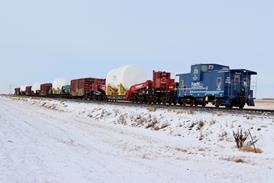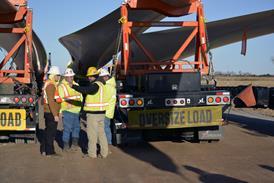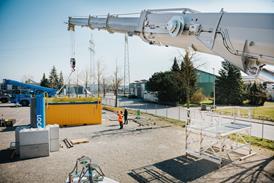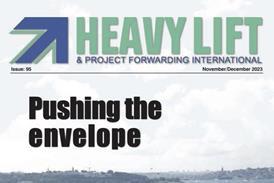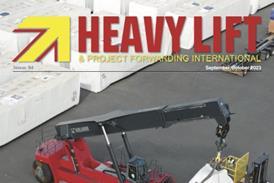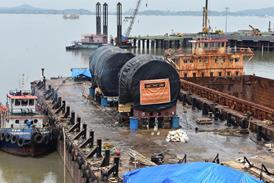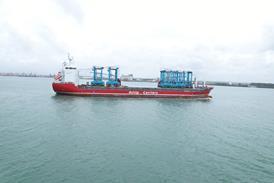The coronavirus (Covid-19) outbreak is expected to lead to weaker than expected full-year cargo demand growth for multipurpose and heavy lift vessels, according to Drewry.
Initial analysis from the Drewry suggests that any anticipated recovery once the outbreak has been brought under control would be insufficient to offset the contractions of the first part of the year.
However, due to the uncertainty around containment and what that means for the global economy, are a number of possible scenarios could play out. These range from a relatively stable best case where the global economy picks up quickly and there is very little after-effect, to a worst-case of a global pandemic that causes recession in a number of the world’s economies.
The International Monetary Fund (IMF) recently downgraded its 2020 GDP growth projection for China to 5.4 percent. Meanwhile, the Organisation for Economic Co-operation and Development (OECD) lowered its central growth forecast for the global economy from 2.9 percent to 2.4 percent. A longer lasting and more intensive coronavirus outbreak could slash growth to just 1.5 percent in 2020.
“For the multipurpose/heavy lift (MPV/HL) sector, there is not only the effect of the virus on project cargo (both from and to China) to consider, there is also the impact on the competing sectors of dry bulk and container shipping,” said Drewry.
Drewry’s baseline view is that for the container sector, the impact has just about been bearable but the longer and more widespread the Covid-19 outbreak, the more damage it will cause.
For the dry bulk sector, where China accounts for 34 percent of all dry bulk trade and has some 56 percent of newbuildings on its orderbook, the initial impact has been more severe. Freight rates dropped significantly over the first two months of the year with the Baltic Daily Index touching a four-year low in February. Although the spot market has started to pick up slightly, there is little optimism for the future strength, added Drewry.
For multipurpose operators, Chinese domestic demand for steel is not expected to pick up before April, but this has led to historically high inventory levels at many mills and an increased interest in exports.
For the renewable energy sector, construction of both wind and solar projects in China has slowed over the last two months due to the coronavirus outbreak, hampering the return to work after the Lunar New Year holidays. However, recent reports suggest that turbine production is on the increase again in China.
Drewry continued: “Our assumptions for breakbulk and project cargo are that although we expect some Chinese (overseas) projects to be delayed, there is clear momentum for most and there is some return to export demand. However, this will be hampered by the latest news of outbreaks in the Middle East, a significant region for project cargo.
“It is our opinion that for the short term the knock-on effect from container and dry bulk segments will be detrimental to the breakbulk sector, as the supply of vessels able to carry general cargo will increase. At the same time, multipurpose cargo demand will be weaker due to the loss of Chinese exports and investor confidence is likely to soften as well, due to concerns for the global economy.
“In the medium term the increasing spread of the outbreak, the loss of investor confidence coupled with the tightening of financing costs for Chinese companies and weaker global demand are all negative drivers for this sector.”
However, if containment is delayed into the second half of 2020 and Covid-19 continues to spread, the hit to multipurpose shipping and the wider global economy will be much greater over both this year and next.

